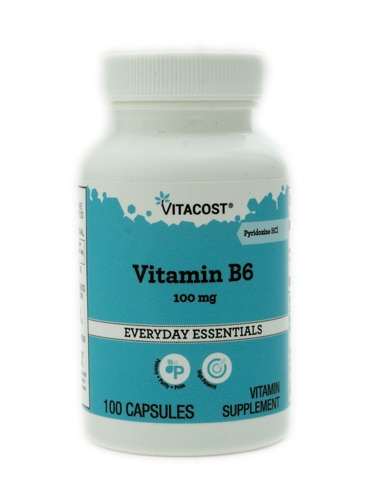[vc_row][vc_column][vc_column_text]While the majority of
dietary supplements, such as vitamins, minerals and amino acids, play positive roles in promoting people’s health, there are potential risks associated with certain supplements that people should be aware of. It’s most likely that you’d run into issues when taking supplements if you consume high amounts, if you mix supplements with prescription drugs, or if you take a bunch of different supplements together. Let’s look at potential reactions people can experience when taking certain types of supplements, plus tips for supplementing safely.

Risks of dietary supplements to know
First and foremost, understand that supplements are not treated the same way as prescription drugs in countries such as the U.S, meaning that organizations including the FDA do not necessarily review
supplements’ safety and effectiveness before they are sold to customers.
This means that as a supplement buyer you want to be choosy and to always do your research, rather than simply purchasing inexpensive supplements (which can be interior in terms of quality and may contain fillers).
Some supplements, including many
herbs, have the potential to interact with each other and with prescriptions, especially if taken in excess. Some types that pose the greatest risk for interactions include:
- John’s Wort, which can possibly interact with antidepressants, anti-anxiety medication, statins, the blood-thinning drug warfarin, or birth control pills/oral contraceptives
- Calcium, which can change how some blood pressure/cholesterol medications work
- Ginko, ginseng, vitamin E, garlic capsules and fish oil, which can all interact with the drug warfarin
Even among those who don’t make daily medications, these supplements can cause side effects:
- Soy isolates, which can impact hormone levels, especially estrogen, in both sexes
- Yohimbe, which may cause sexual changes and chest pains
- Kava, an herb used for its calming effects that may also impact liver function
- Caffeine-containing supplements, which can cause anxiety and sleep issues
- “Performance enhancing” supplements such as creatine, and weight loss supplements containing guarana and phenolphthalein
- And other herbs such as coltsfoot, bitter orange, chaparral, and andro, which are capable of causing a range of side effects
Certain vitamins and minerals should not be taken in higher than recommended dosages, especially “fat soluble vitamins” which stay in your body longer. These types include:
- Vitamin A, which can impact pregnancy outcomes in pregnant women and possibly also cause bone or liver damage
- Other fat soluble vitamins including vitamins K, D and E (your body can’t flush out excess amounts easily compared to water soluble vitamins)
- Calcium, which can have effects on the heart and arteries
- Magnesium, which might have laxative effects
- Iron, which can be constipating
- Fish oil, which can cause “fish burps”; note: fish oil should always be free of PCBs and other contaminants, which isn’t always the case depending on the brand
- Many other minerals such as zinc and copper also impact absorption of other minerals, so it’s best not to overdo it with any one type
How to avoid supplement side effects
Do your research
Read up on which
supplements to avoid if you take prescription medications. You can also ask your doctor about potential interactions so you know which types of products not to mix. In fact, it’s generally a good idea to ask your healthcare provider about new supplements you’re considering taking.
Always buy supplements from a reputable manufacturer
Ideally look for those that provide third party lab reports about the quality of their products to ensure there are no contaminants or impurities present. Read reviews from other customers, and always review the ingredient list carefully to make sure you understand what you’re consuming.
Read dosage recommendations carefully and stick to them.
Be sure to fully read labels before taking a product, and talk to your healthcare provider about the best dosage amounts for your particular needs.
Know when the best time to take different supplements is
Here are some tips for getting the most from the supplements you take and limiting side effects like indigestion:
- B vitamins work best when taken together, and can be taken with or without a meal. But if supplements make you nauseous when taken alone, try pairing them with food.
- Fat-soluble nutrients like vitamins A, D, K and E shouldn’t be taken on empty stomach, which can cause nausea and interfere with absorption.
- Don’t take high doses of minerals with other minerals, or you won’t be able to absorb them well.
[/vc_column_text][/vc_column][/vc_row][vc_row][vc_column][vc_text_separator title="Featured Products" border_width="2"][vc_row_inner equal_height="yes" content_placement="middle" gap="35"][vc_column_inner width="1/3"][vc_single_image image="159370" img_size="full" alignment="center" onclick="custom_link" img_link_target="_blank" css=".vc_custom_1650735308030{padding-right: 7% !important;padding-left: 7% !important;}" link="https://www.vitacost.com/ancient-nutrition-collagen-peptides-protein-powder"][/vc_column_inner][vc_column_inner width="1/3"][vc_single_image image="159368" img_size="full" alignment="center" onclick="custom_link" img_link_target="_blank" css=".vc_custom_1650735331796{padding-right: 7% !important;padding-left: 7% !important;}" link="https://www.vitacost.com/ancient-nutrition-ancient-elixir-superfood-matcha"][/vc_column_inner][vc_column_inner width="1/3"][vc_single_image image="159369" img_size="full" alignment="center" onclick="custom_link" img_link_target="_blank" css=".vc_custom_1650735352429{padding-right: 7% !important;padding-left: 7% !important;}" link="https://www.vitacost.com/ancient-nutrition-plant-protein"][/vc_column_inner][/vc_row_inner][/vc_column][/vc_row]




